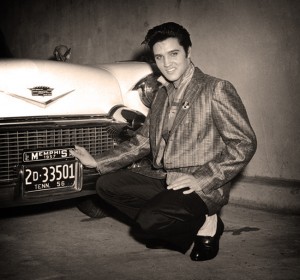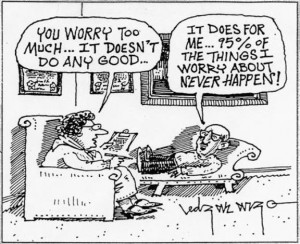12 Things Money Can’t Buy
Website DIVISIONS (Over 600 articles to help you to grow in every facet of your life)
Jimmie Burroughs 1956
 Some despise getting old, but I have a different take on it. As we age we learn about life, or at least we should, and gain wisdom from our experiences. We know what is real and what isn’t. We become a very good judge of human character and are able to discern things that weren’t possible when we were young and less experienced. Also we are able to pass our wisdom along to others that are interested and who will listen.
Some despise getting old, but I have a different take on it. As we age we learn about life, or at least we should, and gain wisdom from our experiences. We know what is real and what isn’t. We become a very good judge of human character and are able to discern things that weren’t possible when we were young and less experienced. Also we are able to pass our wisdom along to others that are interested and who will listen.
Too many today have a false idea on how life actually works because they base their reasoning on movies and television commercials, and as a result they view life through rose colored glasses which distorts all reality.
One of the most misconceived things, especially by young people, is what money actually can buy and what it can’t. This misunderstanding can waste the precious time you have on earth and cause a lot of unneeded pain and regret, and can actually bring ruin to your life rather than the prosperous outcome that you hope for. Learning the limits of what money can do and having the correct attitude toward it is extremely important.
So here are 12 things that money can’t buy:
1. Money can’t buy happiness
When I was growing up in the fifties the whole world was in a transition of great change. One area of great change was music. I lived near Memphis, Tennessee and saw firsthand the rising of “the king of rock and roll”, Elvis Presley. I attended Elvis’s first large concert at Elis Auditorium in downtown Memphis, in 1956. Elvis seemed to have it all, looks, talent and was making more money than most of us could even conceive. He had the kind of life most could only dream of, but could never have; at least that is what we thought back in those days. It would take years before the real truth about Elvis Presley would be known, his drug addiction that finally took his life at a young age, and his loneliness and unhappiness.
change was music. I lived near Memphis, Tennessee and saw firsthand the rising of “the king of rock and roll”, Elvis Presley. I attended Elvis’s first large concert at Elis Auditorium in downtown Memphis, in 1956. Elvis seemed to have it all, looks, talent and was making more money than most of us could even conceive. He had the kind of life most could only dream of, but could never have; at least that is what we thought back in those days. It would take years before the real truth about Elvis Presley would be known, his drug addiction that finally took his life at a young age, and his loneliness and unhappiness.
Consider the stream of recent celebrities who have gained wealth and fame: Marilyn Monroe, Jim Hendrix, Janis Joplin, Kurt Cobain, Anna Nicole Smith, John Belushi, Chris Farley, Amy Winehouse, and Michael Jackson. The things that all these had in common were that they all had wealth and fame, and all died relative young and apparently frustrated with life. Did fame and fortune make them happy? According to the publicity about their lives they were anything but happy.
Let’s ask Howard Hughes if being the richest man in the world in his time made him happy. He became a mysterious recluse, keeping himself isolated in a hotel room day and night for the last years of his life. He did emerge long enough to refute the biography that was falsely written about him. The last question the reporter asked him on that occasion (I was listening on my car radio.) was, “Mr. Hughes are you happy? There was a pause, and then he said what would probably the last word he ever spoke publicly…No! How many times does it have to be proven that money can’t buy happiness before the masses finally believe?
2. Money can’t buy peace of mind
Just last week I read that Lee Ann Rhymes, who was a millionaire by the time she was sixteen, had checked herself into rehab because of stress and anxiety. She is reported to be doing fine. I’m glad; she is only thirty years old and has her life ahead of her. I hope she can discover the peace that money can’t buy.
The only true peace is the peace that comes from God. The Bible describes this peace, “And the peace of God, which passeth all understanding, shall keep your hearts and minds through Christ Jesus” (Philippians 4:7).
3. Money can’t drive away your worries
 It is true that financial problems constitute a lot of worry which money could alleviate, but financial problems are just a few out of many things that cause worry. Everyone, regardless of their financial status, has the same potential for worry. It is an innate part of human physiology:
It is true that financial problems constitute a lot of worry which money could alleviate, but financial problems are just a few out of many things that cause worry. Everyone, regardless of their financial status, has the same potential for worry. It is an innate part of human physiology:
“The neurophysiology of worry: Primitive emotional centers in our brain (e.g., the amygdala) react to potential danger by transmitting an alarm to the area of our brain behind and above our eyes (the prefrontal cortex). The prefrontal cortex analyzes the alarm (worrying, essentially) which signals further alarm back to the amygdala. Picture a vicious cycle of escalating and self-perpetuating alarm and worry between the amygdala and the prefrontal cortex and you have a simplified understanding of the brain’s role in worry. Other parts of the brain contribute, too. For example, the cingulate cortex seems to be overly active among ruminating worriers…” [1]
“Worry is a special form of fear. To create worry, humans elongate fear with anticipation and memory, expand it in imagination, and fuel it with emotion. Worry is what humans do with simple fear once it reaches the cerebral cortex. They make it complex.” “Worry = vulnerability + powerlessness” (Edward Hallowell).
There is a certain amount of worry that is a natural part of our existence on this earth. Distinguishing good or adaptive worry from bad and maladaptive worry is the solution to controlling worry. As mentioned above, worry along with fear and pain and other drives are the bodies’ warning mechanism, intended to warn of a possible impending danger. They prepare us to take positive action. The problem is that they don’t give us the percent of possibility like the weather report when it says that there is a 10% chance of rain. You’re not concerned about rain if there is only a 10% chance it will actually rain, but you may be very concerned about a particular worry which has near 0% chance of happening. When you consider that 95% of the things we worry about don’t happen, most of our worries wind up just being a form of needless self torment.
Worry is a positive thing when used properly. The questions we need to ask ourselves about our worries are: What evidence do I have that what I’m worried about is a serious concern? Is what I’m worrying about something that is out of my control, or is it something I can do something about? Am I blowing it way out of proportion? Does it really matter that much, or will it be something that will pass like most everything else that I’ve worried about in the pass. For more on worry read: “Three things about worry you must know in order to cope.”
Remember this excellent quote: “Once you have enough money for all your needs and a reasonable number of your desires, the excess will add to your concerns, not alleviate them.” [2]
4. Money can’t buy security
That money buys security is a big misconception. However, I’ve tried it both ways with and without money, and I’ll assure you that I prefer having money to not having it. Money gives us considerable control over our environment and prepares us for the unexpected, but it can never give us complete control over life events. Heart attacks, accidents and health issues happen to rich and poor alike. In reality, “We’re all bobbing in a sea of uncertainty” (Stacy Johnson). No amount of money will ever give you complete security.
5. Money can’t buy love
What about Hugh Hefner? He’s in his eighties, but still always has the youngest and prettiest women around him to cater to his every need. If your classification of love is solely sexual, then yes money can buy it. However, love is far more than a sexual act. Money in fact can cloud the issue. If you have a lot of money, it is hard to discern if someone loves you for who you are, or if they are just attracted to your money. Which do you think is the case with Mr. Hefner? The following is a good definition of real love:
|
My definition of love… by Torran Comp |
6. Money can’t buy friends
For sure money can’t buy friends, but it can make it very difficult to know who your friends are. People looking for a hand out or a free ride are attracted to wealthy people. It is easy for wealthy people to have a lot of hangers-on, but rarely do they have a lot of true friends.
If you have a lot of wealth, how do you ever know for sure the motives of your so called friends? Perhaps there is little doubt concerning the friendship of those with an equal amount of wealth, or those who were friends before wealth came along.
The truth is that true friends are hard to come by for anyone, and if you have some, it is far more valuable than money ever could be. True friends like you for who you are and not for what you can do for them.
7. Money can’t buy real purpose
Money in itself can’t buy purpose. However, it can help you to establish purpose if you use it wisely, but you don’t have to have money to have purpose in your life. Many of the greatest contributors to the human race never had money, and if they did they gave it away. Jesus, the Lord, never had wealth. In fact he said one time, “Foxes have holes and birds of the air have nests, but the Son of Man has no place to lay his head” (Luke 9:58). At his death Jesus, whose purpose was the greatest of all mankind, to die as payment for the sins of man, had nothing but the clothes on his back.
8. Money can’t buy health
Anxiety over money can destroy health, but it can’t buy health. Yes I know that it takes money to provide health care, but what I mean is that no amount of money can buy back your health once it’s gone. Rich people have health problems and die as a result of them just as anyone else.
9. Money can’t be taken with you at death
We come into the world with nothing and we also leave with nothing. “For we brought nothing into the world, and we can take nothing out of it” (I Timothy 6:7). The good of money is when it is used properly. Amassing tremendous fortunes to be left behind for heirs to fight over isn’t the proper way to use money. It is refreshing to see some of the wealthiest men in America using large sums of money to help others by building institutions that employ large numbers, or by providing money for research to alleviate disease. But the greatest help for humanity does not come from the super rich, who are few in numbers, but from the masses who contribute of their money to charitable organizations that help many.
10. Money can’t buy respect
Money may create disrespect but it can’t buy respect. Respect is something that is earned. It might be a highly respected war hero who gave his own life to save others. It could be a husband or wife who won respect because of their loyalty and integrity. People are sometimes respected for their genius for making money but not solely for the money they have.
11. Money can’t solve all your problems
 To live on planet earth is to experience problems, “Man is born unto trouble as the sparks fly upward” (Job 5:7). The rich and famous usually have many more problems than the ordinary person. Money brings with it great responsibility and numerous problems to be dealt with. So it isn’t uncommon for wealthy people to commit suicide. The pinup to the left depicts a famous poet who took her own life by sticking her head into a gas oven. All of mankind has problems for which money is seldom the cure. However, we must observe that money can eliminate some problems, but in general it will fall short of addressing most of the major problems of life. It can, however, escalate problems; many of the problems in a marriage are caused by money and how it is spent. For more on problem solving read:“Three key principles to help you confront any problem”
To live on planet earth is to experience problems, “Man is born unto trouble as the sparks fly upward” (Job 5:7). The rich and famous usually have many more problems than the ordinary person. Money brings with it great responsibility and numerous problems to be dealt with. So it isn’t uncommon for wealthy people to commit suicide. The pinup to the left depicts a famous poet who took her own life by sticking her head into a gas oven. All of mankind has problems for which money is seldom the cure. However, we must observe that money can eliminate some problems, but in general it will fall short of addressing most of the major problems of life. It can, however, escalate problems; many of the problems in a marriage are caused by money and how it is spent. For more on problem solving read:“Three key principles to help you confront any problem”
12. Money can’t get you to heaven
Last and I believe most important of all, money can’t buy your way to heaven. According to Jesus there is only one way to go to heaven. Jesus said, “I am the way and the life and no man cometh unto the Father but by me” (John 14:6). Read the article on how to go to heaven when you die.
[1] –Anxiety and Stress Disorders Institute of Maryland
[2] –Money Talks News – Fri, Sep 7, 2012 4:22 PM EDT
Jimmie Burroughs: Founder of Christian personal development.
 About the author: Jimmie Burroughs is a motivational speaker and author who has been involved in teaching Christian Personal Development for more than 30 years. There are hundreds of articles to help you on this website, Website Contents , in your person growth. If I can help you personally, please send your concerns via: Contact me.
About the author: Jimmie Burroughs is a motivational speaker and author who has been involved in teaching Christian Personal Development for more than 30 years. There are hundreds of articles to help you on this website, Website Contents , in your person growth. If I can help you personally, please send your concerns via: Contact me.
___________________________________________________________________________________________________________
Website DIVISIONS (Over 600 articles to help you to grow in every facet of your life)
![]() To subscribe to blog simply click on the RSS button on the left, and copy and paste the URL of our RSS feed into your RSS reader. ARTICLE INDEX _____________________________________________________________________________________________________________ © 2011 Jimmie Burroughs. All rights reserved
To subscribe to blog simply click on the RSS button on the left, and copy and paste the URL of our RSS feed into your RSS reader. ARTICLE INDEX _____________________________________________________________________________________________________________ © 2011 Jimmie Burroughs. All rights reserved